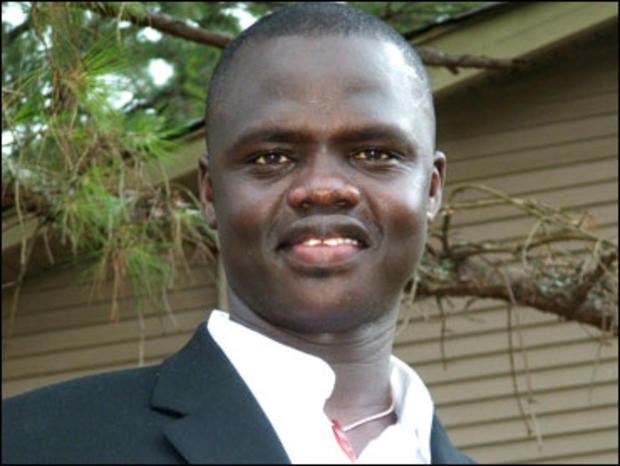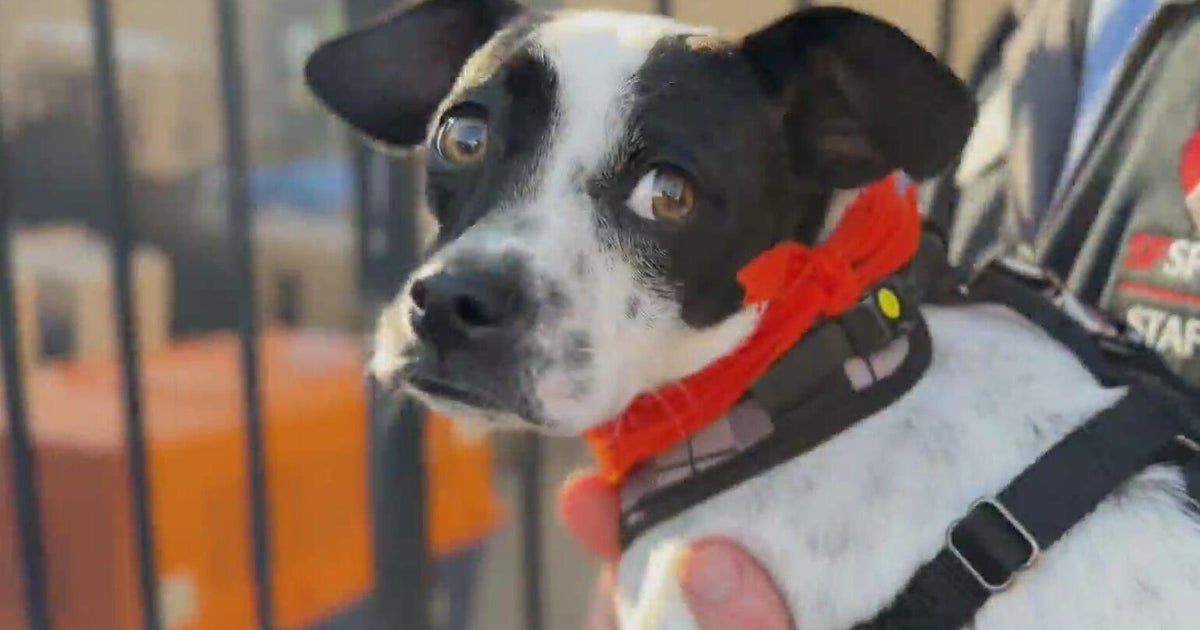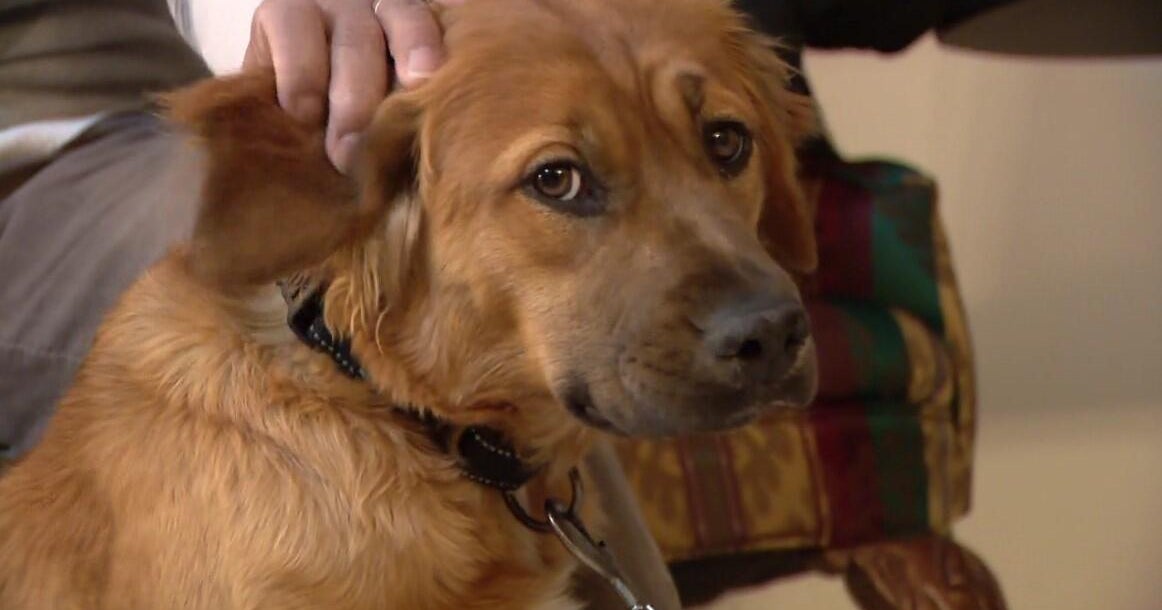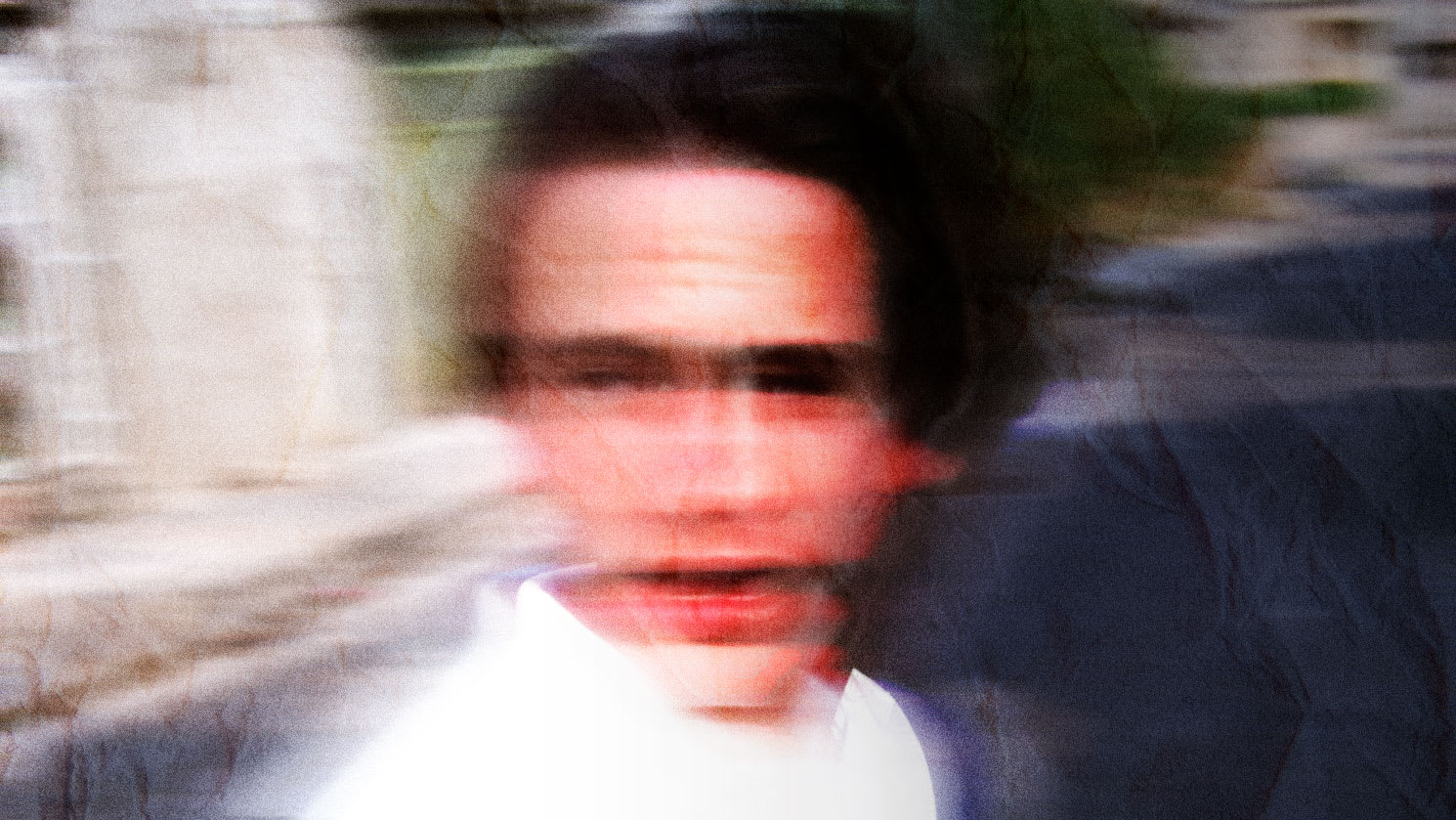"Lost Boy" finds his audience
Valentino Achak Deng is on the move. Last week, he was in Atlanta, where he recited the Pledge of Allegiance and officially became a United States citizen. From there, he traveled to New York to headline two events promoting a book based on his life. Then it was off to San Francisco, where he spoke at a Darfur rally.
Deng is crisscrossing America, speaking to anyone who will listen to his story. And thanks to Dave Eggers' latest book, "What Is The What," many people are listening. The novel, a National Book Critics finalist, chronicles Deng's life, from his harrowing trek as one of the so-called "Lost Boys" of Sudan to his eventual resettlement in America.
Twenty years ago, Deng was running for his life. Now the soft-spoken native of Marial Bai is in the midst of a 65-city book tour.
Deng and Eggers' collaboration started in 2003 in Atlanta. After just one weekend, they had forged a bond and taped 14 hours of Deng's most disturbing childhood memories.
"Reliving it was very tough," Deng says, "when we started excavating the details of the things I saw."
What Deng saw was a nightmare. At the age of 7, he was forced to flee his home when Arab militias burned down his village in southern Sudan. Men were executed indiscriminately, women and children were raped and abducted. Deng escaped never knowing the fate of his parents.
Orphaned along with 20,000 boys, he walked hundreds of miles through a desolate African landscape. Along the way, Deng witnessed boys' limbs torn apart by bombs. Some starved to death, others were devoured by crocodiles. Ultimately, he ended up living for 13 years in refugee camps, first in Ethiopia, then Kenya.
The 23-year civil war not only obliterated Deng's childhood, it paralyzed Sudan. Roughly 2 million people were killed and 4 million others driven from their home. Deng was one of 3,800 Sudanese finally admitted to the United States as refugees in 2001.
But his long-awaited break proved ominous: His flight from Nairobi to New York's JFK Airport was booked for Sept. 11, 2001. (The terrorist attacks delayed his trip for two weeks, but Deng was ultimately able to settle in Atlanta.)
Once in the U.S., Deng realized almost everyone in his new home had no knowledge of the crisis in Sudan. He knew his story had to be heard. With the help of friend Mary Williams, who had set up a foundation for the "Lost Boys," Deng connected with Eggers.
After hearing countless anecdotes, the author realized the scope of Deng's experiences required more than just a few interviews. Eggers, whose own memoir was nominated for a Pulitzer Prize in 2001, decided he could better tell Deng's story — which is both heartrending and humorous — in novel form. Streamlining events and consolidating characters, the author unraveled Deng's story in painstaking detail.
"We promised each other we'd finish the book in six months," Eggers says. "It took four years."
Though lacking a major publicity machine (the book was published by Eggers' small independent press, McSweeney's), "What Is The What" has made waves. The novel cracked The New York Times' bestseller list and made Deng a coveted speaker nationwide.
Early on in their four-year collaboration, Deng and Eggers caught a break: In 2003, a cease-fire was declared in southern Sudan. Seizing upon a rare window of peace, the pair flew in the cargo hold of a plane back to Deng's village of Marial Bai. It was the first time Deng got to see his mom and dad since being separated from them in 1987. A throng of people greeted Deng on the airfield to welcome him home.
Deng recalls the thrill of reuniting with his family and friends. But he remembers being equally distressed by the consequences of a long, brutal war. Every season, for 23 years, his village had been burned down, the livestock stolen and the harvest destroyed.
"It really affected people," he says. "I could see it in their faces. I could see it in their bodies. I could see it in the physical infrastructure of the village."
Deng is trying to transform what he saw. Proceeds from the book will go toward a foundation set up in his name. Most of the resources will go toward building a school, community center and library in Marial Bai. Deng's father has already begun rebuilding his once-thriving business.
Though his village is slowly on the road to recovery, western Sudan has since fallen into a bloody conflict Deng knows all too well. The deadly Janjaweed currently terrorizing Darfur are nearly identical to the government-backed militias (the murahaleen) that devastated his home. With Darfur increasingly making headlines, Deng's message takes on a new urgency, his book tour heightened interest.
He is using the spotlight to urge anyone who will listen to put pressure on their elected leaders. For Deng, the most persuasive argument to instill action is simply to tell his own life story.
"I want people to know what war does to people," Deng says. As he puts it, if nothing is done today, "what will we say tomorrow?"
But right now, Deng is too busy to worry about the future. Before he returns to college next semester (he attends Allegheny College in Meadville, Pa.), he has some traveling to do. Today, the "Lost Boy" from southern Sudan has found an audience waiting him in Burlington, Vt. Then he's off to Providence, R.I., then Fort Collins, Colo.
Valentino Achak Deng has a story to tell.
By Stephen Smith




